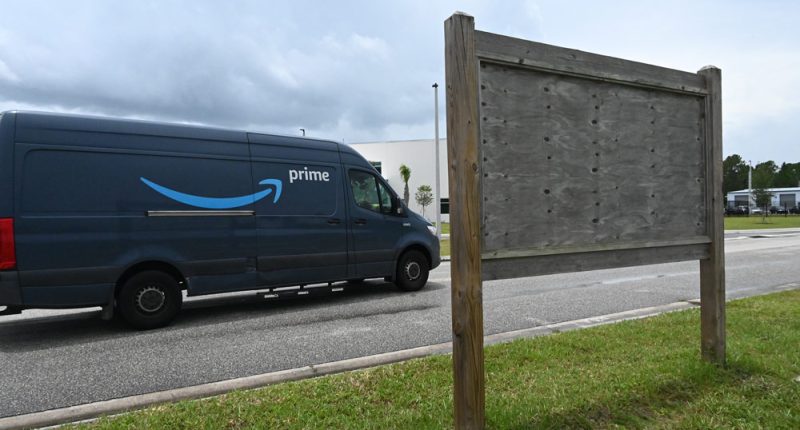
The Palm Coast City Council on Tuesday signaled its willingness to reconsider the city’s ban on the overnight parking of commercial vehicles in residential driveways without the vehicles’ signage being covered.
The ban has long vexed working-class residents who depend on their work vehicles to make service calls at all hours of the day. Paradoxically, the workers often report to the very same homeowners who support the ban–and who may own vehicles that, while not commercial per se, have considerably less aesthetic value than a work truck.
The ban reflects Palm Coast’s emphasis since its founding in 1999 on a code that can prize beautification ahead of pragmatism, sometimes at the expense of beautification itself: the remedies the city requires to cover up what it considers unsightly often end up uglier than what’s being covered up: Commercial van owners who still park in their driveways are required to cover up their vans’ signage with tarps. The effect is no less shabby than tarps covering damaged roofs. The city’s requirement that air conditioning compressors at the side of houses be “hidden” has created a similar jumble of hideous fencing or shaggy shrubbery, again drawing attention to ugliness rather than enhancing the neighborhood.
The City Council considered repealing or amending the ban on commercial vehicles twice before, in 2010, when the effort was led by the local chamber of commerce, and in 2021, when a seemingly more work-friendly council came very close to a repeal. But the effort fell short both times. In 2021, the city surveyed residents, albeit in a flawed method, drew 16,500 responses, and got a split 49-49 verdict. The web-based survey allowed people to vote as often as they wanted, so a single IP address ended up accounting for 12.5 percent of the No votes, an obvious sign of fraud. Without it, the vote to repeal the ban would have won easily.
The council in 2021 had no intention of repealing the ban wholesale. Semis, dump trucks, two trucks, tractors, ice cream trucks and other larger commercial vehicles would still be prohibited from overnight parking. But such vehicles as platform trucks, pick-up trucks or vans with side signs would have been allowed to park as tarpless as on a Riviera beach. (See examples here.)
After a push by then-Council members Ed Danko and Victor Barbosa, the council’s vote to amend the ban to that effect failed, 3-2.
On Tuesday, Emily Fields, a Palm Coast resident for the last three years, asked the council to revisit the issue and immediately drew support from the mayor and a council member.
“These blue collar workers and small business owners are really important to Palm Coast,” Fields said. “We have six young kids in our family. My husband works for a garage door company. He has to take extra time to cover and uncover his clean work van with a very tacky looking vehicle cover every single day, rain or shine, as he works hard to provide for our family. Meanwhile, our one family car of the same make and model as his work van for transit sits right beside it in our driveway, and we rely on his work vehicle. We don’t have any other vehicles or ways for him to get to and from work. We live on a back street with both of our vans parked neatly in front of our well kept home. It in no way obstructs views or causes a disturbance to our community or our neighborhood, but these regulations that are in place are extremely burdensome, and I think they send the wrong message about our beautiful city to the working class.”
City Council member Theresa Pontieri swiftly endorsed the suggestion that the subject be reopened. “I do think it’s time we redress that issue,” she said, gaining support from her colleagues for a workshop on the issue soon. She got no push-back. None of the council members who last voted on the issue in 2021, whether for or against amending the ordinance, are on the council anymore.
Mayor Mike Norris “wholeheartedly” agreed with Pontieri. “Those tarps are horrible, and I do think we need to relook it,” he said.
Fields said the city can define the parameters of a more realistic rule. “We’re just talking about nice, clean work vans and trucks, no oversized or run down eyesores. And honestly, the required vehicle covers, which are really just glorified tarps, look absolutely awful, and those are the real eyesore here,” she said. “Palm Coast is changing and we’re growing, and we are no longer solely a retirement community. Many young working families like ours are moving to this beautiful, wonderful, amazing city, and we add vibrancy and diversity and the same care and passion for nurturing this thriving community that we all share in this room.”
The perception that Palm Coast is becoming less of a retiree city and more diverse with working-age residents is common, but proportionately false. It is the reverse: the city is getting older, with retirees making a larger share of its population than at its founding.
When the city was founded 25 years ago, its median age was 45.8 years, and the proportion of people 65 and older was just 25 percent, according to the 2000 Census figures. The traditional working-age population–people between 18 and 65–made up 53.4 percent of the total.
According to the Census Bureau, the city’s media age has risen sharply, to 50.9 (the median age in Florida is 42.4, and in the United States, 38.5. According to 2024 estimates, the proportion of Palm Coast’s 65-and-over population has risen to 29.9 percent, while the proportion of those of working age has fallen slightly to 53 percent (the larger drop is in the proportion of those younger than 18, which partly explains why the school district’s population has been stagnant.)
What justly feeds the perception that there are more working class people living in the city is that in sheer numerical numbers, there are: the city’s population between 2000 and 2004 has gone from 20,400 to 102,113, a 400 percent increase, with a labor force of 51,355 as of November–two and a half times the total city population in 2000.
![]()







